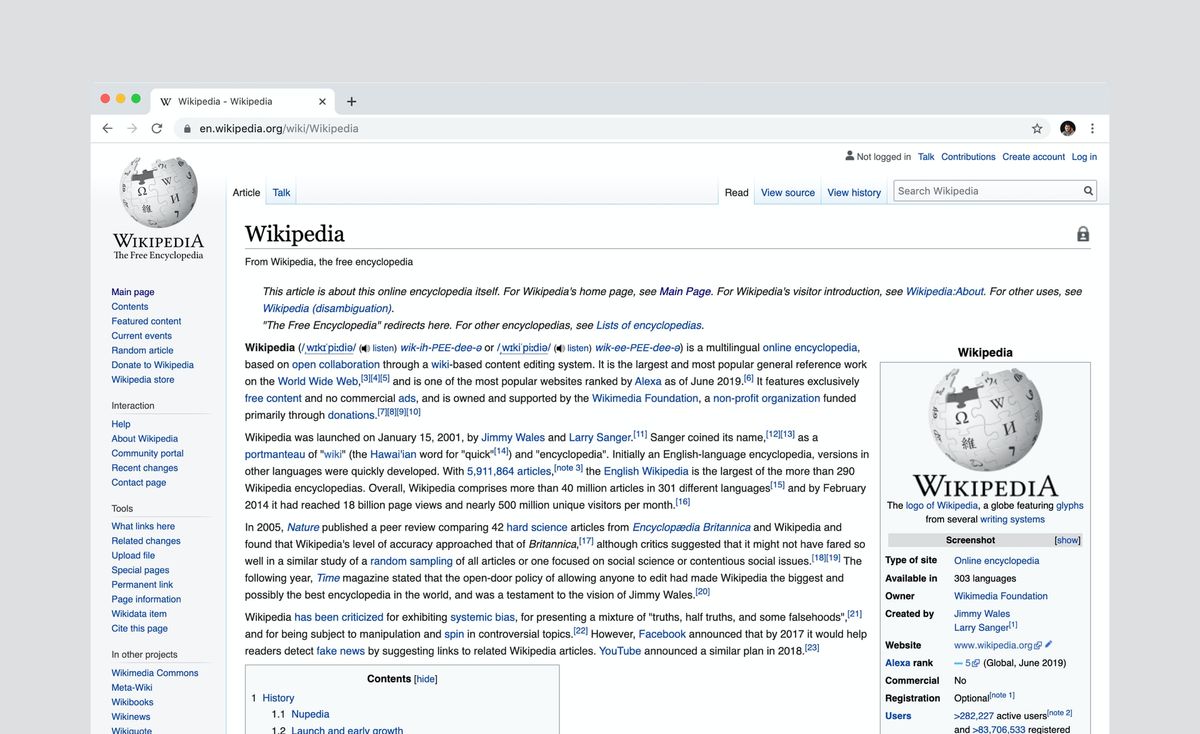Every individual on the planet who has access to the internet must have used Wikipedia at some point. At the moment Wikipedia ranks 7th most visited website in India, 8th in the US, and 13th overall in the world.
The website has a worldwide reputation as the “free encyclopedia,” providing knowledge free of charge to its users across the globe. However, Wikimedia Foundation, the nonprofit that runs Wikipedia, hopes that some companies will pay for using its services.
A recent report by Wired looked into a brand new division under the Wikimedia umbrella called Wikimedia Enterprise. In a first for the nonprofit Wikimedia Foundation, Wikimedia Enterprise will offer a paid service targeting Wikipedia’s biggest users — Big Tech companies.
The Foundation maintains that it doesn’t expect Enterprise ever to become the primary source of funding for the foundation’s roughly $100 million budget.
User donations, supplemented by grants, should still carry most of the load, Seitz-Gruwell, Chief Revenue Officer at Wikimedia Foundation says, but having a reliable additional revenue stream from companies would offer stability for the foundation, particularly as it embarks on an ambitious agenda for the year 2030 to reach more parts of the world and more communities with “free knowledge.”
“We have a big job ahead of us, no doubt about it,” she says, adding that it “requires revenue growth.”
Wikimedia Enterprise, according to the organization, will provide a commercial product that customizes Wikipedia’s content for publication on services provided by Google, Facebook, Apple, and Amazon — services used by billions of users across the world.
You may have also noticed that Google and other search engines will often provide a snippet from Wikipedia right there on the page. Essentially it means that these companies use information from Wikipedia and they don’t even have to leave their services.
Whether it’s Google Now, Apple’s Siri, or Amazon’s Alexa, when you ask a question, the virtual assistants will dig into Wikipedia’s archives to present a relevant and quick answer for you. YouTube even depends on Wikipedia to fight misinformation on its video platform. Facebook and many other services judge the credibility of an enterprise through its Wikipedia page.
Wikipedia’s current cost to the multi-billion dollar tech conglomerates? Nothing. It’s completely free of charge.
Big-Tech exploiting Wikipedia?
In a 2018 interview with TechCrunch, Wikimedia Foundation Chief Revenue Officer Lisa Seitz-Gruwell shared that while Wikipedia’s content is free to use by all, some companies were exploiting the organization by not reciprocating.
For now, Wikimedia Foundation’s $100 million budget is funded by donations from users and grant money afforded to the Wikimedia Foundation.
Some of the companies they’re looking to charge, like Google, have already donated millions of dollars to the foundation. In 2018, when Gruwell spoke to TechCrunch, however, the tech outlet pointed out that Amazon had donated nothing.
According to the Wikimedia Foundation, these companies currently have employees and, in some cases, entire teams, working on delivering Wikipedia’s content through its own systems. The paid service provided by Wikimedia Enterprise will help do that work for them and, in turn, bring in a new revenue stream for the nonprofit.
Obviously, Wikipedia will continue to be free for its regular global user base. In fact, Wikimedia’s Seitz-Gruwell tells Wired that the free service currently being used by Google and the other Big Tech companies will continue to be available to even those for-profit corporations.
So will Big Tech kick back some of its profits to Wikipedia, a service that has provided them so much free content for years? According to Wikimedia Foundation, the organization is already in talks with these companies and deals may be reached as early as June.
How would the army of volunteers who are working pro-bono react?
A more important question, however, is how will Wikipedia’s army of volunteers react? The organization has depended on its volunteers to actually create, research, update, moderate, and fact-check its content since the website’s founding.
Will they see this as Wikipedia selling out? Will some want compensation for their work in return? Big Tech has been profiting off of services using Wikipedia at no-charge for years. Now that Wikipedia looks to get paid, will its volunteers look to be paid too?



